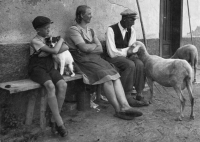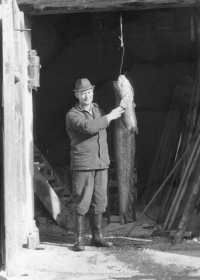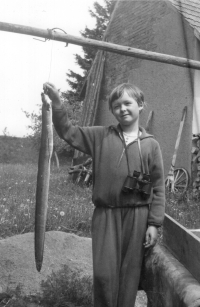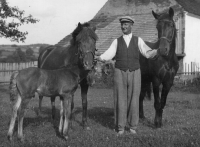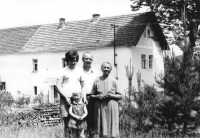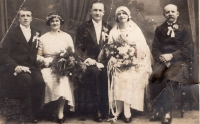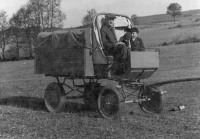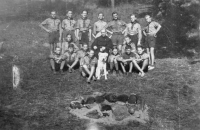They all let that Vaníček live there, Germans and Americans alike. It wasn’t until the Communists evicted him
Download image
Jiří Bouše was born on 14 February 1934 in Nepomuk, but grew up in Zahorčice. His father was one of 18 children who grew up on the family mill. He has many memories of the Second World War, he experienced coal holidays and refugees staying at the school, he remembers a plane being shot down and the arrival of the hairdressers. After the war, his father lost his trade and Jiří Bouše became an electrician. He enlisted in 1954 in the civil defence unit in Prague, they were supposed to guard important nodes such as factories, government buildings, etc. The next year they were moved to Kutná Hora to the dissolved Voršilek monastery, from where he has a curious story, when they searched in the deserted monastery for the mass wine, but found instead the walled up valuables. He worked all his life in the working professions, for example in the Škoda factory. In 2022, he lived in Nova Rola in the Karlovy Vary region.
